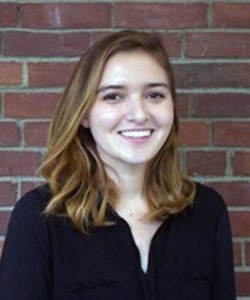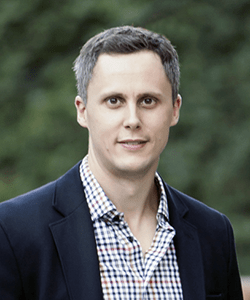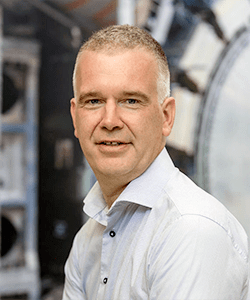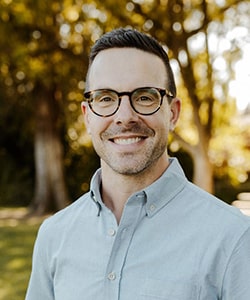Spring 2024
 February 16, 2024: Ashley Villar (Harvard)
February 16, 2024: Ashley Villar (Harvard)
Title: Time-domain Astrophysics in the Era of Big Data
[Villar Talk Recording] [Villar Talk Slides]
Abstract: The eruptions, collisions and explosions of stars drive the universe’s chemical and dynamical evolution. The upcoming Legacy Survey of Space and Time will drastically increase the discovery rate of these transient phenomena, bringing time-domain astrophysics into the realm of “big data.” With this transition comes the important question: how do we classify transient events and separate the interesting “needles” from the “haystack” of objects? In this talk, I will discuss efforts to discover and classify unexpected phenomena using semi-supervised machine learning techniques. I will highlight the interplay between data-informed physics and physics-informed machine learning required to best understand the future LSST dataset of extragalactic transients.
Bio: Ashley Villar is an assistant professor of Astronomy at Harvard University. Her research focuses on data-driven analysis of optical transients, including core-collapse supernovae and kilonovae. She is particularly interested in representation learning for sparse, multivariate light curves. Ashley is the co-Chair of the LSST Informatics and Statistics Science.
 March 22, 2024: Matthias Katzfuss (University of Wisconsin, Madison)
March 22, 2024: Matthias Katzfuss (University of Wisconsin, Madison)
Title: Non-Gaussian Emulation of Climate Models via Scalable Bayesian Transport Maps
[Katzfuss Talk Recording] [Katzfuss Talk Slides]
Abstract: A multivariate distribution can be described by a triangular transport map from the target distribution to a simple reference distribution. We propose Bayesian nonparametric inference on the transport map by modeling its components using Gaussian processes. This enables regularization and accounting for uncertainty in the map estimation, while resulting in a closed-form invertible posterior map. We then focus on inferring the distribution of a spatial field from a small number of replicates. We develop specific transport-map priors that are highly flexible but shrink toward a Gaussian field with Matern-type covariance. The approach is scalable to high-dimensional fields due to data-dependent sparsity and parallel computations. We present numerical results to demonstrate the accuracy, scalability, and usefulness of our generative methods, including emulation of non-Gaussian climate-model output.
Bio: Matthias Katzfuss is a Professor in the Department of Statistics at University of Wisconsin–Madison. His research interests include computational spatial and spatio-temporal statistics, Gaussian processes, uncertainty quantification, and data assimilation, with applications to environmental and satellite remote-sensing data. His research has been funded by NSF, NASA, NOAA, USDA, Sandia National Laboratory, Jet Propulsion Laboratory, and Texas A&M Institute of Data Science. Matthias is the recipient of an NSF Career Award, a Fulbright Scholarship, and an Early Investigator Award from the American Statistical Association’s Section on Statistics and the Environment.
 April 5, 2024: Wouter Verkerke (University of Amsterdam / Nikhef)
April 5, 2024: Wouter Verkerke (University of Amsterdam / Nikhef)
Title: Uncertainty modeling in particle physics
[Verkerke Talk Recording] [Verkerke Talk Slides]
Abstract: Wouter will present a pedagogical introduction to uncertainty modeling in particle physics. He will mostly focus on the methods used at the Large Hadron Collider experiments, where systematic effects are explicitly parameterized in the likelihood function in terms of nuisance parameters. Accurate modeling of systematic effects is of increasing importance at the LHC as the abundant data has decreased statistical uncertainties in many measurements to be on par with systematic uncertainties. He will discuss the reasoning behind the modeling approaches commonly chosen, common challenges in the parametric modeling and in the interpretation of the corresponding uncertainties. He will conclude with the special considerations in the modeling of theoretical uncertainties, which are often incompletely defined.
Bio: Wouter Verkerke is a professor in the physics department of the University of Amsterdam and is head of the ATLAS group at Nikhef, the Dutch Institute for particle physics. His research interests include Higgs boson physics and top quark physics at the Large Hadron Collider. Wouter is member of the ATLAS experiment at CERN since 20 years and has coordinated various of its analysis groups including the top quark physics group, the Higgs combination modelling group and the statistics forum. He is the author of one of the most popular statistical modelling tools in particles physics, RooFit, part of the ROOT data analysis package since 2003.
 April 19, 2024: Mark Risser (LBNL)
April 19, 2024: Mark Risser (LBNL)
Title: Detecting multiple anthropogenic forcing agents for attribution of regional precipitation change
[Risser Talk Recording] [Risser Talk Slides]
Abstract: Daily rainfall accumulations are a critical component of the global water cycle, and comprehensive understanding of human-induced changes in rainfall is essential for water resource management and infrastructure design. Detection and attribution methods reveal cause and effect relationships between anthropogenic forcings and changes in daily precipitation by comparing observed changes with those from climate models. However, at sub-continental scales, existing studies are rarely able to conclusively identify human influence on precipitation. In this work, we show that anthropogenic aerosol and greenhouse gas emissions are the primary drivers of precipitation change over the United States and, by simultaneously accounting for both agents, we explicitly decompose the uncertain regional human influence into the individual effects of these agents. Greenhouse gas (GHG) emissions increase mean and extreme precipitation from rain gauge measurements across all seasons, while the decadal-scale effect of global aerosol emissions decreases precipitation. Local aerosol emissions further offset GHG increases in the winter and spring but enhance rainfall during the summer and fall. Our results show that conflicting literature on trends in precipitation over the historical record can be explained by offsetting aerosol and greenhouse gas signals.
Bio: Mark is a Research Scientist in the Climate and Ecosystem Sciences Division at Lawrence Berkeley National Laboratory. He received his Ph.D. in Statistics from the Ohio State University in 2015 (thesis advisor: Catherine Calder). Mark’s primary goal as a statistician is to use data science, Bayesian modeling, and computational tools to identify and quantify climate change. His research focuses on statistical climatology, extreme value analysis, Gaussian processes, and Bayesian modeling.